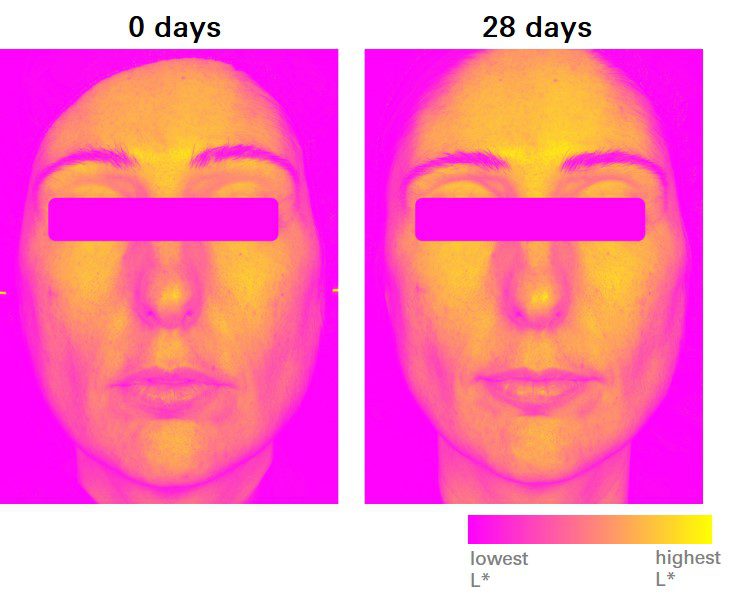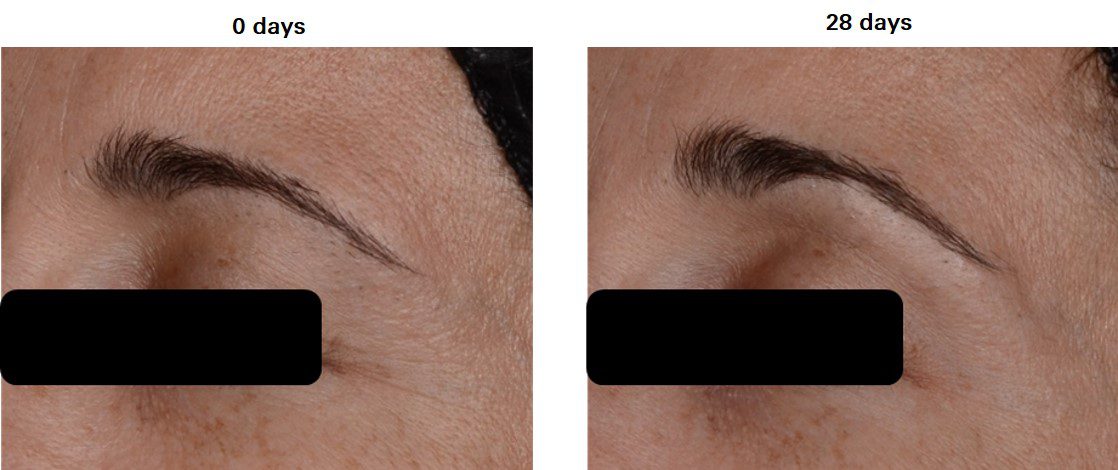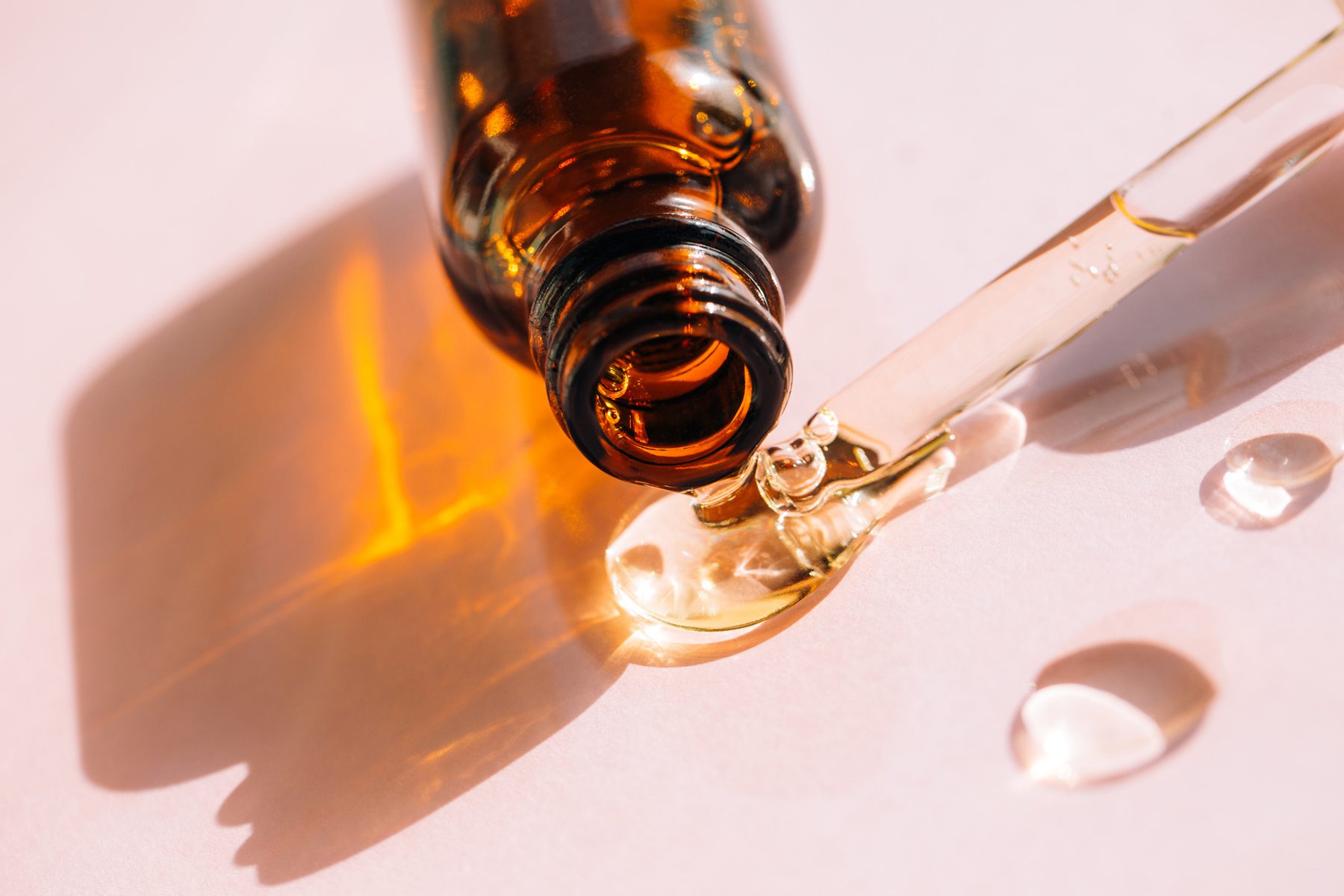The Inside Scoop on Peptides in Skincare
Peptides are considered a must-have skincare ingredient — and for good reason. Known for their powerful anti-aging and anti-inflammatory benefits, they have a permanent and celebrated place in the skincare industry. Peptides, also called polypeptides, are naturally occurring in the skin. But what exactly do peptides do for your skin? When should you use peptides? And what exactly are they? Let’s break it down.
What Are Peptides?
A peptide is a short chain made up of two or more amino acids. The amino acids are linked by a chemical bond called a peptide bond. When organized in complex structures (typically consisting of 50 or more amino acids), peptides then become proteins.
Collagen, the most vital protein within your skin, lies beneath the epidermis in a layer known as the dermis. This layer of the skin is made of nerves, blood vessels, fats, elastin, and collagen. Collagen peptides make up about 80% of your dermis. They help your skin look firm and smooth, cultivating a youthful, radiant glow.
When you’re young, you produce collagen at a very high rate; however, as you age, that rate begins to slow. After age 20, your body produces an average of 1% fewer collagen peptides for skin each year, stopping production entirely around age 40. Additionally, your existing collagen begins to break down, which is known as “fragmenting”. Essentially, without peptides, there’s no collagen, and without collagen, there’s no defense against the appearance of skin aging.

Source: Medium
7 Best Peptides For Your Skin
There are many different types of peptides for the skin, with each boasting an array of unique benefits. Some of the most commonly used peptides in skincare are:
- Signalling Peptides that act as messengers to trigger the synthesis of collagen.
- Carrier Peptides that are known to link up with other ingredients to aid in their delivery to your skin cells.
- Neurotransmitter Inhibitors that are proven to work within the skin to visibly improve fine lines and decrease the appearance of wrinkles.
- Enzyme Inhibitors that help stave off collagen loss.
- Structural/Keratin Peptides that allow the skin barrier to retain water for a more radiant complexion.
- Palmitoyl Tripeptides that hydrate the skin and reduce the appearance of wrinkles, fine lines, and other signs of skin damage caused by the sun and environmental pollution.
- Copper Peptides that promote collagen and elastin production, while also encouraging the production of glycosaminoglycans, which is a family of carbohydrates that help maintain and support collagen and elastin.
The Benefits of Peptides in Skincare
Peptides help skin to look and act younger by targeting precise areas to address concerns like loss of firmness, dullness, wrinkles, and discolorations. A true well-aging multi-tasker, peptides are one of the few skincare components that scientists and dermatologists agree can make a difference when used regularly in your skincare regime. Here is a deeper look at the benefits of peptides in skincare:
Peptides Improve the Skin Barrier
The skin barrier is the body’s line of defense and can be damaged from over-exfoliation, exposure to cigarette smoke and other pollution, or even poor sleep. Peptides help build up a stronger, more tight skin barrier, which makes it more elastic, firm, and smooth.1
Peptides Slow Down the Aging Process
Some studies indicate that peptides slow the aging process and treat wrinkles, while also improving skin elasticity and hydration.2,3 In addition, peptides stimulate the production of melanin, which may improve the skin’s protection against sun damage.4
Peptides Improve Wound Healing
Skin is soothed and regenerated with peptides, buffing away scars and skin impurities. They can reduce inflammation and act as antioxidants, which can improve the body’s ability to heal. Peptides are also antimicrobial, meaning that they kill the bacteria that causes acne, along with clearing up any lesions left behind.5
Peptides Deeply Hydrate the Skin
Peptides are said to be magnetized according to your requirements. When your skin is lacking hydration, your body will recognize the amino acid that’s present in the peptides and reassemble it within the hydrating structure. Peptides will hydrate by creating water-retaining proteins and cells. They will not just prompt the skin to create new connective tissues, but will also increase the production of hyaluronic acid, which is the ultimate way to retain moisture in your skin.6
What You Can Expect From Peptides in Your Skincare Routine
While many companies boast Botox-like benefits of peptides for skin, the reality is, that just isn’t true. Peptides cannot totally eliminate under-eye bags, fill out lips, or lift brows. However, according to Dr. Benabio of The Derm Blog, a small group of peptides, known as neuropeptides, may be able to block signals sent between your nerves and your facial muscles, as Botox does.7
Dr. Benabio explains why this doesn’t mean that neuropeptides will give you the same effect as Botox. “It would be like pouring a small glass of water onto a mattress and expecting it to soak through the underside of your box spring—it’s very unlikely.”8
What you can expect from the consistent use of peptides for skin is steady firming and smoothing of your skin as it becomes tauter and more elastic. The evidence that supports the relationship between peptides in skincare and your body’s generation of natural peptides for skin is pretty overwhelming.
In some clinical trials of peptides in skincare, as much as 100% of patients reported improvements in the overall appearance of crow’s feet, radiance, and firmness, and 97% experienced overall improvements in fine lines, skin texture, and clarity.

Pictured: Patients using skincare with peptides (Left: Before; Right: After). Source: Colorescience
Are There Any Side Effects To Using Peptides?
Being completely natural, peptides are mostly harmless. However, some people may still experience adverse reactions of irritation and sometimes even allergies. To avoid harming your skin, it’s always a wise decision to perform a patch test before using a new skincare product. If you experience any itching, redness, inflammation and so on, you should always consult with your doctor or dermatologist.
To perform a patch test, you should:
- Wash and clean the patch of skin you’re going to use first. If there is a reaction, you will want to be sure that it’s the new product you applied and not something else.
- Apply a small amount of the product to the patch of skin you’ve chosen, and cover the area with an adhesive bandage. Try applying the new product to the inner area of your upper arm near the crook of your elbow.
- You should ideally allow 24 hours before removing the adhesive bandage. However, if you experience any pain, burning, or itching, you should remove the adhesive bandage and wash the affected area right away.
Nonapeptide-1 in Herban Wisdom® Eye Cream
Humanist Beauty Herban Wisdom® Eye Cream is formulated with Nonapeptide-1, which also goes by the trade name DAWNERGY™. Developed and patented by a company called Lubrizol, this 99.5% naturally-derived peptide is said to wake up the cells of the skin by increasing JARID1a and clock gene levels, enhancing early morning functions of the skin as if it was noon. The peptide also provides an energizing effect on skin cells and has evident anti-fatigue effects even after a night out. The efficacy of the new peptide has been proven with several tests:
A unique clinical study was performed on female volunteers that applied a cream containing a dose equivalent to 1% peptide solution or a placebo cream once a day in the morning for 7 days. After a dinner and a party on day 7 and sleeping only 4 hours at night, a 16.9% decrease in volume of bags under the eyes as well as a 7.0% increase in the cutaneous blood flow were observed, suggesting an anti-fatigue effect despite little rest.
Another in vivo test was carried out to evaluate skin radiance and youthful effect of the nonapeptide. After 28 days of active treatment, macro photographs of the face were acquired with a high-resolution camera, and images were processed with Luminosity software, which visualizes the range of luminosity values in a color map.
The luminosity parameter increased after treatment, showing a glowing radiant complexion.

Source: Lubrizol
To determine variations in wrinkles, macro photographs were taken before and after the treatment. A decrease of 15.4% in the coefficient of visibility of wrinkles in the crow’s feet was observed after 28 days, suggesting a rejuvenated skin appearance.

Source: Lubrizol
DAWNERGY nonapeptide-1 activates the cellular alarm clock to help the skin wake up earlier, visibly improving the skin complexion through its revitalizing and anti-aging activities.
It is incorporated into the Herban Wisdom® Eye Cream formulation at an active level to help improve the appearance of the entire eye area by reducing signs of fatigue and providing a revitalising treatment.

You can shop the new Humanist Beauty Herban Wisdom® Eye Cream here.
—
References:
https://pubmed.ncbi.nlm.nih.gov/24401291/ [2]
https://lpi.oregonstate.edu/mic/health-disease/skin-health/peptides [4]
https://www.ncbi.nlm.nih.gov/pmc/articles/PMC6684887/ [5]







